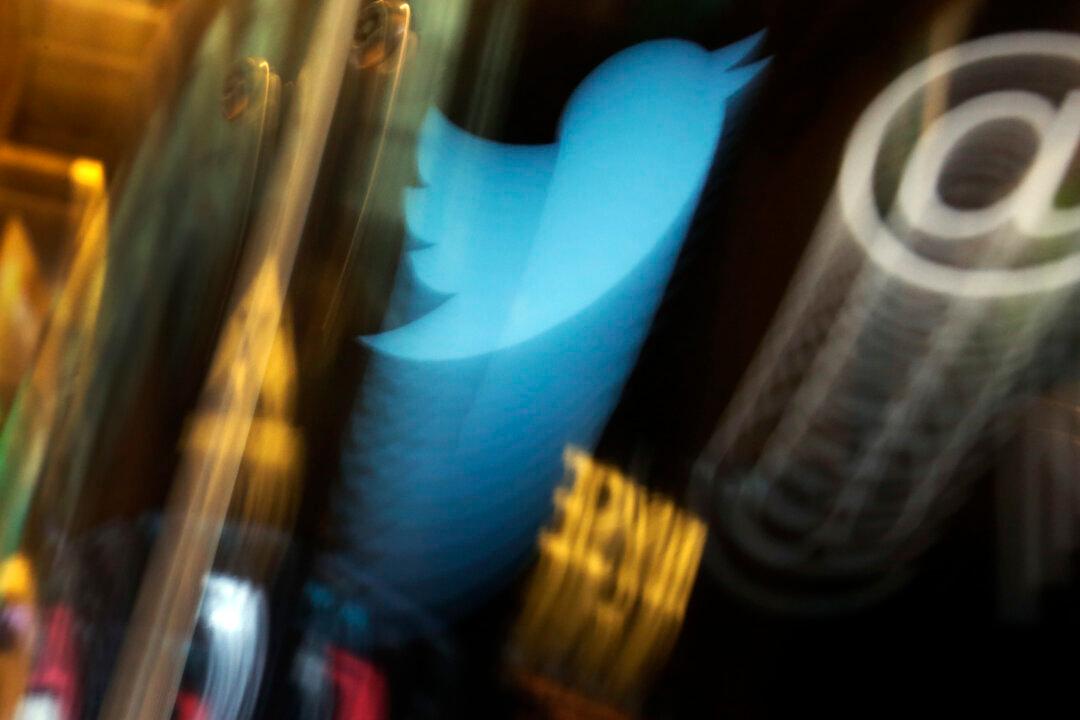
The Twitter logo appears on an updated phone post on the floor of the New York Stock Exchange on Nov. 6, 2013. Richard Drew/AP Photo
Editorial
Facebook and Twitter have taken extraordinary steps against the New York Post over an article about the son of former Vice President Joe Biden.
